Night Tapes: “Other producers seemed like wizards. Then we found out they just had better plugins”
A talented dream pop trio talk distortion, reverbs, granulation and their third EP, ‘Perfect Kindness’
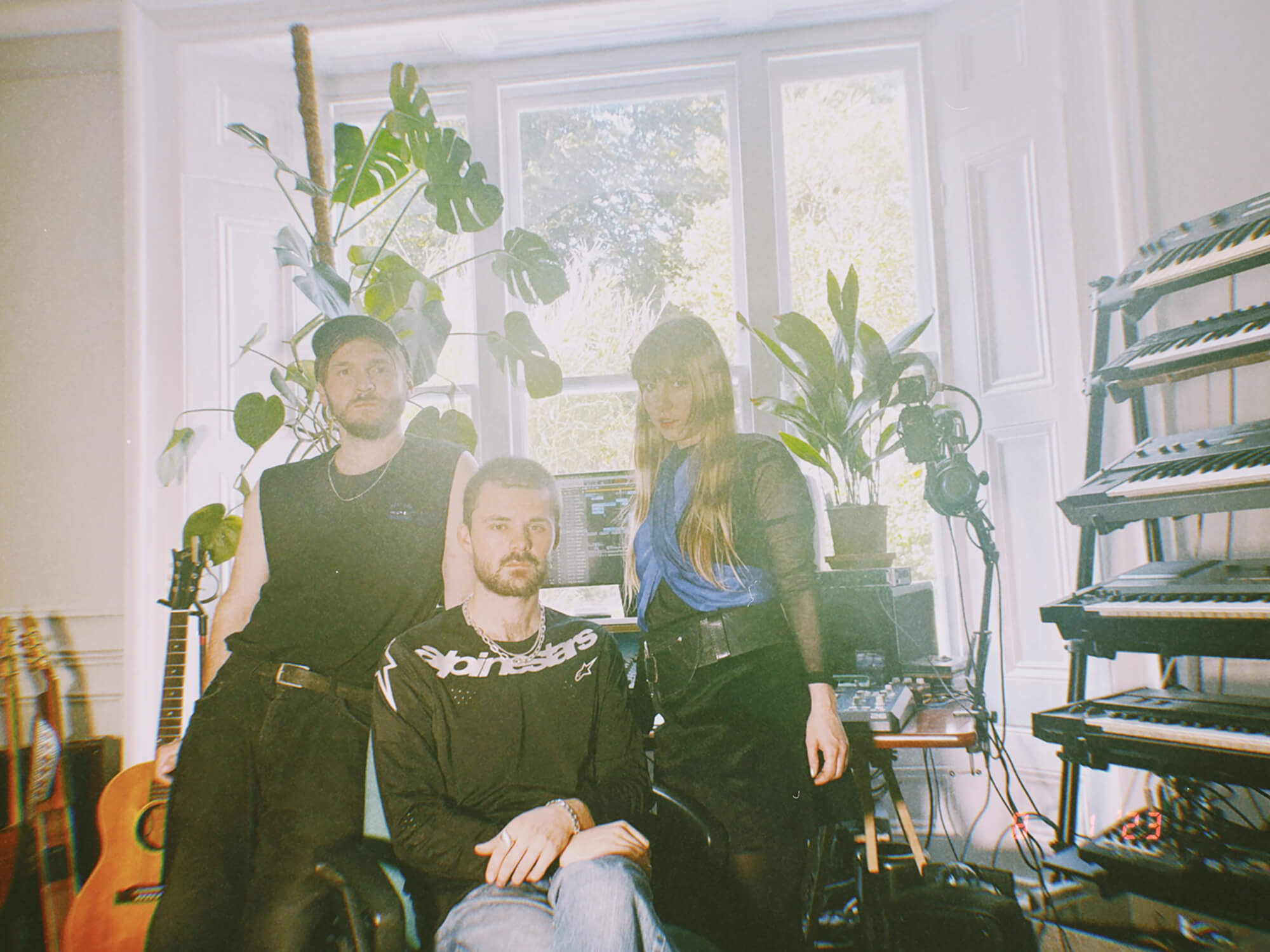
Night Tapes. Credit: Natalie Hewitt
Night Tapes are a seriously talented three-piece band creating electronic-tinged, psychedelic dream pop. Hailing from London, the outfit is made up of Max Doohan, Sam Richards and Iiris Vesik, three musicians who formed the band after a series of late night jam sessions.
Perfect Kindness is the title of just Night Tapes’ third EP – which is early on in their journey when you consider how pristine each track sounds. It helped, we must add, with the maestro hand of mixing engineer Nathan Boddy, who’s worked with PinkPantheress, James Blake, Mura Masa and London Grammar. We speak to the band and find out about the plugins in particular that helped shape this stunning EP and why digital tools and synths help their music-making process.
Hey, Night Tapes! How are things?
Iiris: Hey, MusicTech! We’re deep into making a new EP (which will probably be the last EP before an album), preparing for a little tour in the UK and Europe in September/October and trying to enjoy the rainy summer we’re having in London.
What are your individual roles and how do you work together?
Ritchie: We don’t really have defined roles so much. We were all producing music individually before Night Tapes and this carries across to how we write now. Most of the songs start as a demo from one of us individually, which we then collectively work on it to carry over the line.
Tell us about your love of plugins.
Max: There’s a lot of innovation going on in plugins and plugins are generally a lot cheaper and easier to demo. While we love old hardware that’s tried and tested there’s something to be said for using new tools that create new outcomes in your music.
Iiris: I remember how everything I made used to sound shit and other producers seemed like wizards who could just magically make stuff sound better. Then I found out they just had better plugins and eventually I had to get a good microphone. Until those things happened, everything was just frustrating.
What’s your latest plugin purchase?
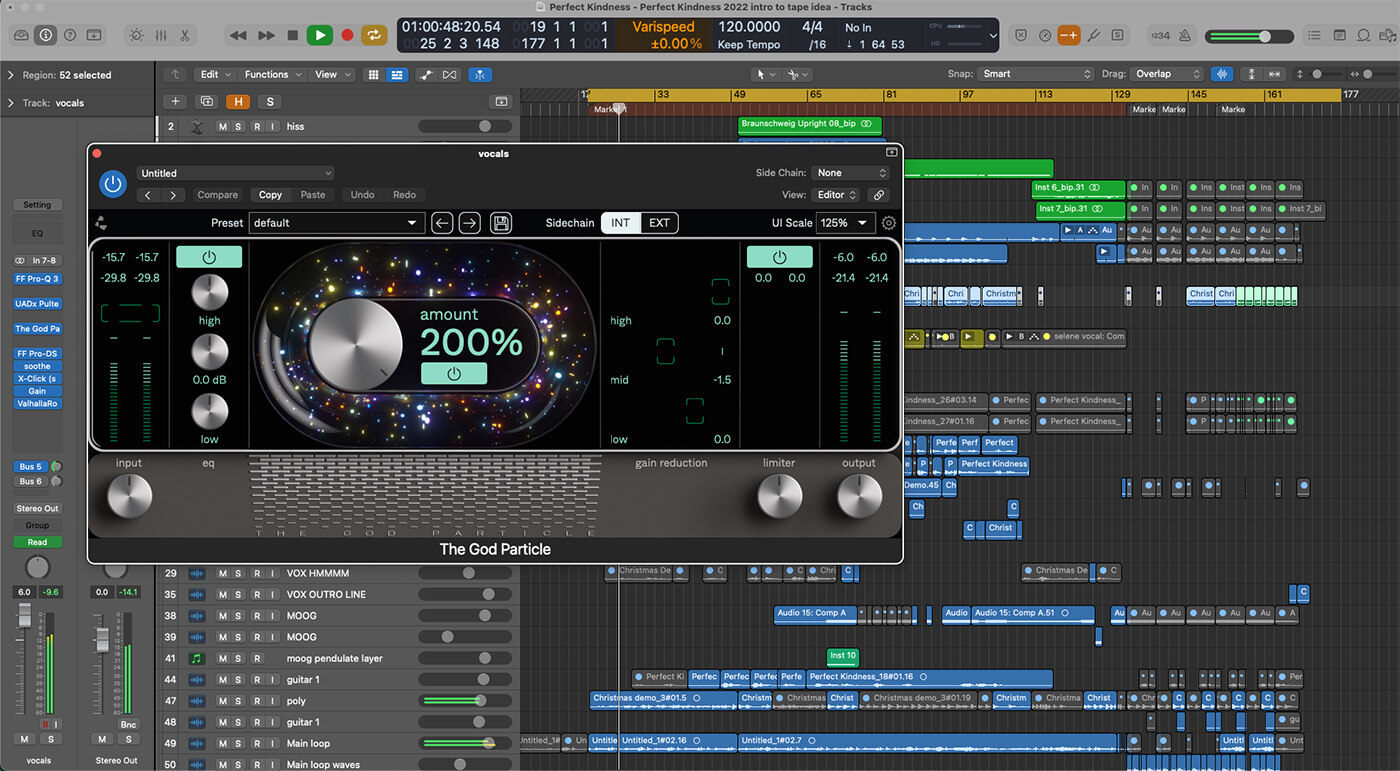
Max: We recently got a plugin called The God Particle by Cradle which is an enigma. It has a definite sound which either really works or really doesn’t. There’s a track on the latest EP Perfect Kindness on which we recorded the lead vocals with an iPhone and then cranked that plugin to 200 per cent to emphasise all of the artefacts.
What’s the best-value plugin you own?
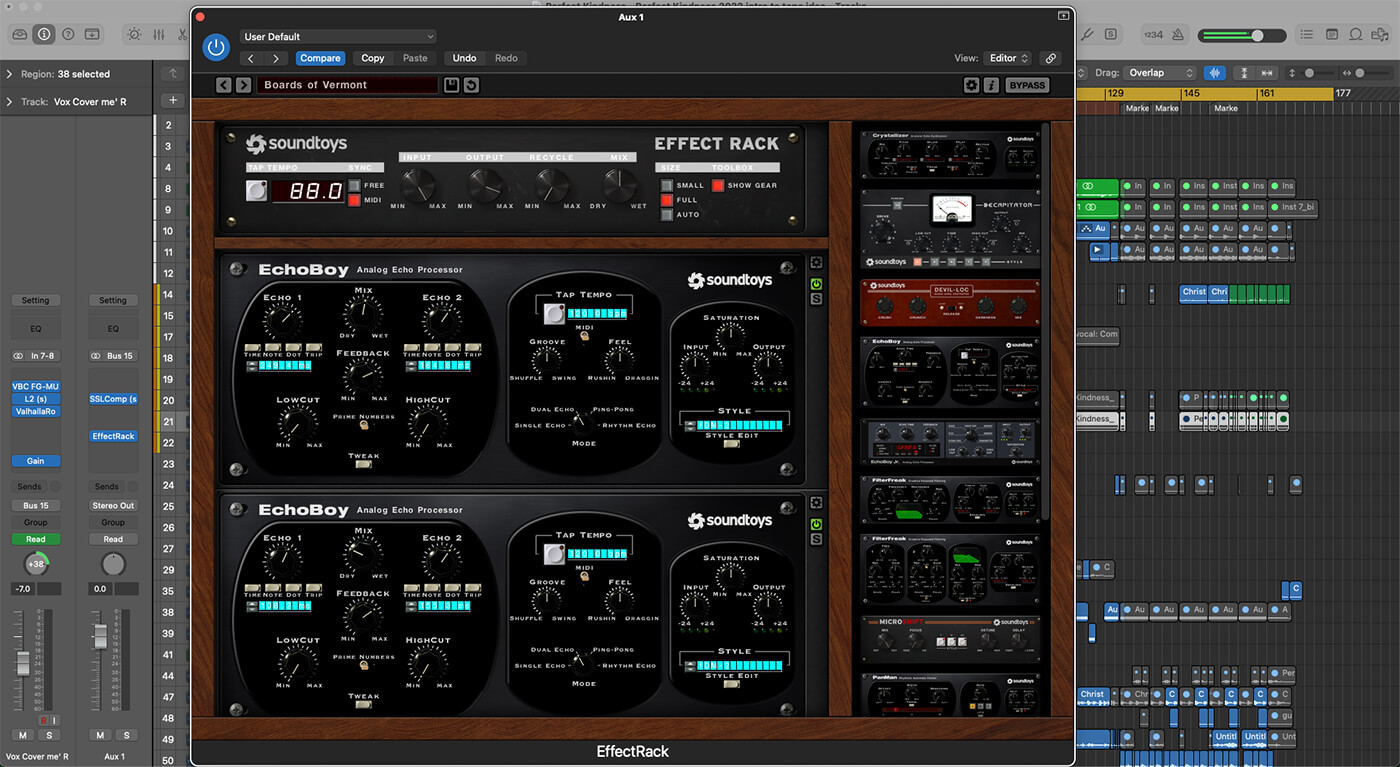
Max: SoundToys Effect Rack. This multi-plugin rack was a ray of light in the lockdown when it came out for $99. We use the presets all the time and it’s such a creative toolbox to have access to.
What’s the weirdest plugin you own?
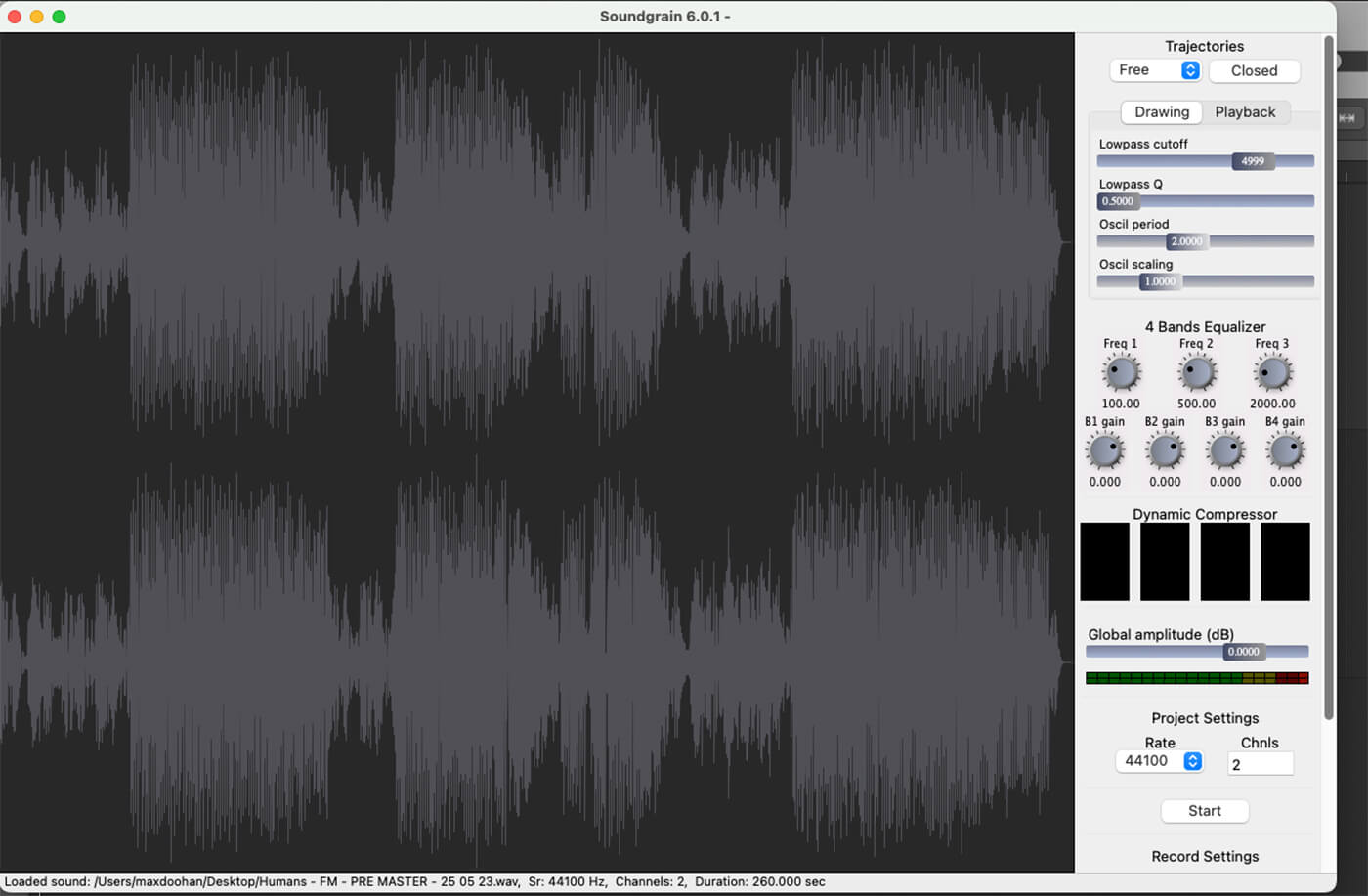
Ritchie: It’s not really a plugin exactly, but Soundgrain is an amazing tool for manipulating audio. It’s a little hard to explain exactly what it does, but it effectively time stretches and loops samples at different frequencies to create amazingly interesting textures. It’s an amazing way to create beds of sound and ambient pads.
What plugins go on your master bus without fail?
Max: Sonarworks SoundID Reference. our studio is not currently acoustically treated so it’s helpful for getting a more accurate sound in the room- especially for mixing.
What plugin would your latest EP, Perfect Kindness, be incomplete without?
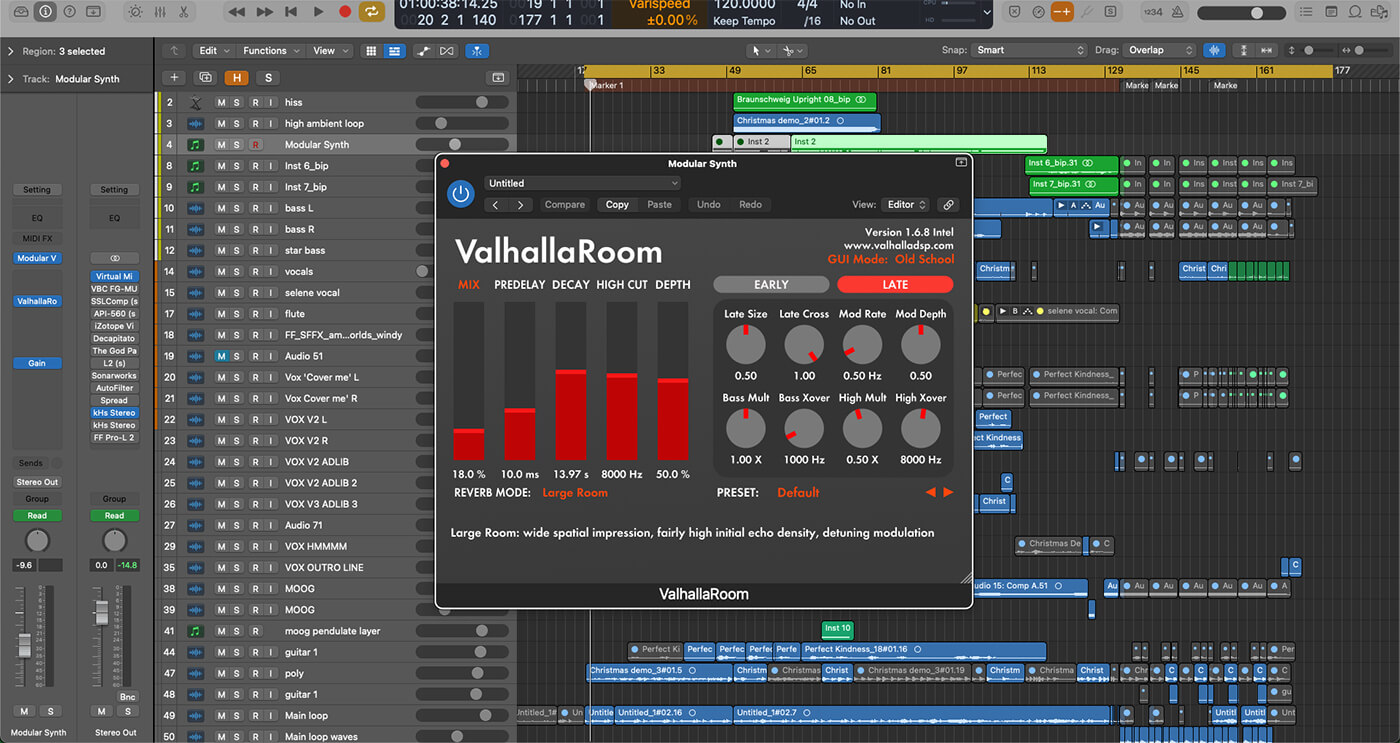
Max: ValhallaRoom by Valhalla DSP. It’s our go-to reverb across all of our music and has become an instrument in its own right. It doesn’t really imitate a real space like most VST reverbs – it’s got an ethereal quality.
You’ve created a really distorted atmosphere on Humans. How?
Richie: A big part of that distorted sound is running various instruments through cassette multitrack preamps – primarily our Tascam four track mixer. On certain parts, we’ll track to cassette tape and transfer that to our project. The cassette tape has quite a limited dynamic range, so it compresses the tape saturation in a musical way.
When it comes to vocals, we’ll often combine this saturated sound with software saturation so it’s easier to bed into the mix. Like many others, we’re big fans of using Soundtoys’ Decapitator to do this. Saying that, I’m a big fan of Logic Pro’s stock clip distortion. You have a lot of control over where clipping occurs, and it runs well in parallel with the mix turned right down. The big vocal sound on both Humans and Inigo is a result of this. It has a really bright, sparkly saturation that compliments the heavier, more midrange tape saturation of the Tascam.
Do you have any secret sauce plugins?
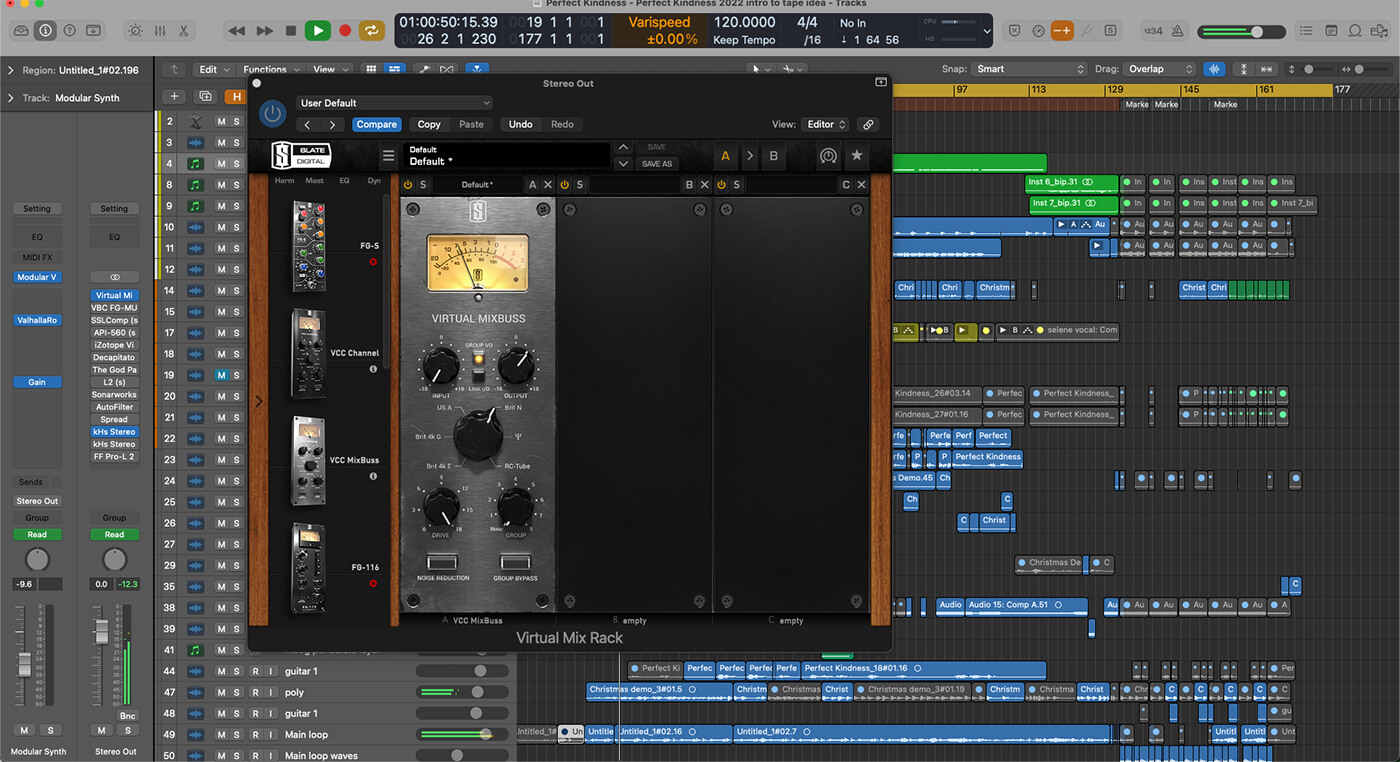
Max: Virtual MixBuss by Slate. It’s an analogue desk emulator which has become our default first plugin on our output chain. It adds a little more air and color to everything.
Richie: Virtual Tape Machines, also by Slate. It’s really subtle, but sounds warm and lifelike. I’m a massive fan of Waves’ (slightly less realistic) Kramer Tape too. Flux control is dangerously addictive.
What about a guilty pleasure plugin?
Richie: Fabfilter’s Pro L 2. Turning a mix up by 4db is apparently the real secret to impressing friends, family and A&Rs.
Listen to more of Night Tapes’ music on Bandcamp.